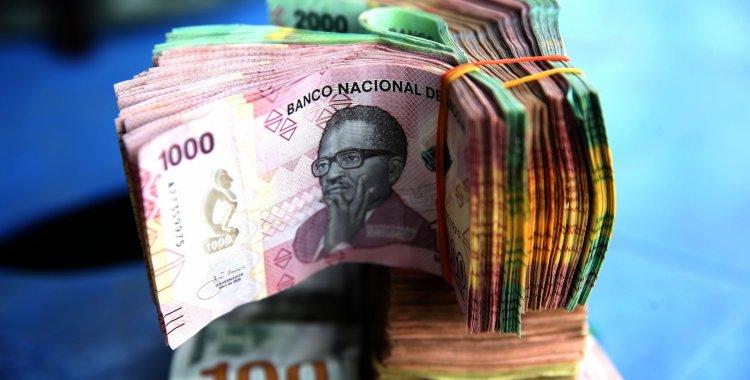The concept of privatization is associated with the sale of all assets and liabilities of a company or assets belonging to the State to a private party. The privatization process has always been defended by liberal economists who consider the State's insignificant role in the economy to be essential. For example, the famous economist Milton Friedman argued that the market economy is the best form of social organization and that the State, in order to become more efficient by reducing expenses and consequently generating resources, should have a significantly reduced role in the economy.
As in other geographies, in the spectrum of the Angolan economy, we can consider two notable periods in terms of the privatization process to be highlighted:
1st Period (1989 – 2012): The prelude to this period resulting from the collapse of the Soviet Union, led to a set of transformations in Angola in the privatization component, that is: If after independence there were nationalizations of private companies, the year 1989 marks a new phase of readjustment of public companies and effective transfer to private companies.
With the publication of DL No. 32/89 and DL No. 10/94 and DL 13/94, which essentially consisted of guaranteeing equality between private companies in terms of protection and promotion in the economic field compared to private companies. However, it was with the Creation of the Resizing and Privatization Program and the respective publication of DL nº 14/03, 123/03, 37/06 that allowed a high number of privatizations essentially associated with the direct award modality.
2nd Period (2019 – 2026): While the first wave of privatizations that the country saw was essentially marked by the direct award modality and a level of transparency that had its internal and external reservations. For the second privatization period, a different behavior was observed, resulting essentially from the approval of Law nº 10/19 of 14 May – Basic Law for Privatizations and Presidential Decree nº 250/19 of 5 August relating to the Privatization Program (PROPRIV ).
Effectively, with the approval of the aforementioned diplomas, the establishment of solid lines was guaranteed, which ended up resulting in a “close look” on the imperativeness that a privatization process must incorporate from the point of view of transparency.
It was in this dimension of transparency that the Privatization Program (“PROPRIV”) includes two procedures highlighted below:
Source: IGAPE
Certainly from the point of view of scientific objectivity, when we compare the two periods of mass privatization seen in Angola, it is easy to see that in the country's current scenario the economic situation reflects a greater aversion to improvisation, thus making it imperative that the new The era of privatization is intrinsically linked to the transparency of processes in a public way.
According to information published on IGAPE's institutional website, from 2019 to date, 103 assets or companies have already been privatized involving an amount raised of around 601.73 billion kwanzas, leaving around 63 assets or companies to be privatized.
thus demonstrating the relevance of the aforementioned program in terms of the desire to make the Angolan economy more efficient with less presence of the State.
Source: IGAPE
Of course, PROPRV's main attraction is public offers via Stock Exchange platforms, and the essence of a functional stock exchange must configure the highest point of market transparency, due to the level of requirement and public scrutiny of the processes
involved.
It is in this dimension that the second period of privatizations in Angola is already considered one of the biggest milestones in the capital market, as it led to the process of companies entering the Stock Exchange, serving as a learning curve for private initiatives by companies that intend to open the share capital on the stock exchange, thus obtaining financing that complements the traditional one offered by banks.
From 2022 to the present date, within the spectrum of the public offering modality provided for in PROPRIV, four (4) processes were carried out involving around KZ 82.25 billion, with so far only the BCI process resulting from the auction on the stock exchange and the other processes were the result of offers
public, thus contributing to the expansion of the shareholder structure of the aforementioned companies by a total of around 1983 new shareholders.
Source: BODIVA
Now, as already mentioned in comparison to the privatization procedure via tender, the privatization procedure via offering on the stock exchange essentially ends up being the “invitation” to learn about the aforementioned program and extensively for some investors the first contact with the securities market. capitals.
In a phase in which more and more firm steps have been seen in the capital market in Angola, when we discuss privatizations via the stock exchange there is an urgent need to reflect on what awaits us, and with this reflection we will be prepared to understand objectively the correlation between the offers and the different investor profiles.
Evidently, the success of the processes that are part of the PROPRIV universe that are privatized via the stock exchange will depend on several aspects, however, we highlight, fundamentally, only the “principle of the preciousness of details”. In the Herculean mission of selling companies via the stock exchange within the current economic situation, it will be essential to perfectly read the profile of Angolan investors without missing any fundamental details of the process.
Without prejudice to possible adjustments to PROPRIV resulting from the guidelines of the National Interministerial Commission responsible for implementing the Privatization Program (CNI-PROPRIV), in the current scenario from the point of view of executing privatizations via the stock exchange in reflection on the
that awaits us, Angolans can look forward to the expansion of companies listed on the stock exchange in the coming years resulting essentially from the respective expansion of the issuer base via public offering or auction on the stock exchange.
Source: PROPRIV Universe - Companies to be privatized via the stock exchange (IGAPE)
On this path, we can additionally state that what awaits us above all is the readjustment of the essence of the market economy. Not a new “normal”, but rather the “normal”, marked by the correct functioning of the economy in which the State must be focused on its fundamental functions and the private sector must prepare itself to guarantee the effectiveness of economic growth and development in the country.








